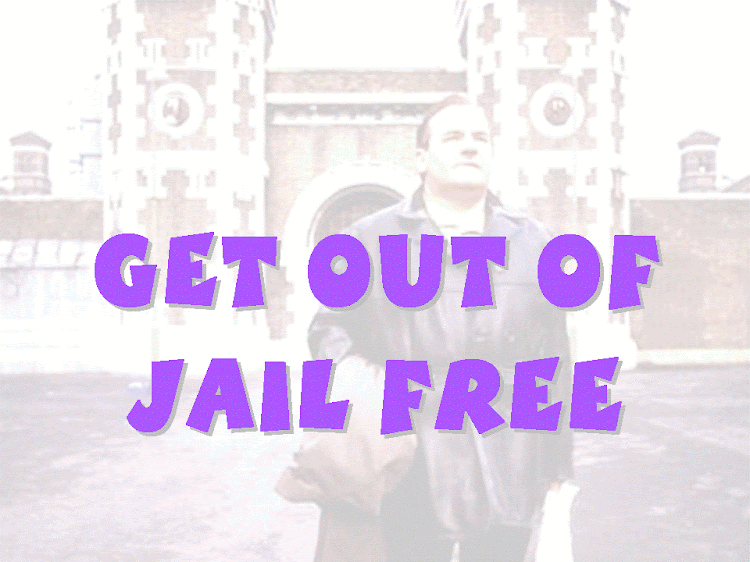 I came across this quote from Eugene Peterson on a forum today and I think it's so good I'll nick it and post it here:
I came across this quote from Eugene Peterson on a forum today and I think it's so good I'll nick it and post it here:"The churches of the revelation show us that Churches are not Victorian parlours where everything is picked up and ready for guests. They are messy family rooms. Entering a person’s house unexpectedly, we are sometimes met with a barrage of apologies. St. John does not apologise. Things are out of order, to be sure, but that is what happens to churches that are lived in. They are not show rooms. They are living rooms, and if the persons living in them are sinners, there are going to be clothes scattered about, handprints on the woodwork, and mud on the carpet. For as long as Jesus calls sinners to repentance – and there is no indication yet that he changed his policy in that regard- churches are going to be an embarrassment to the fastidious and an affront to the upright. There is nothing particularly glamorous about them, nor, on the other hand is there anything particularly shameful about them. They simply are.
Much anger towards the church and most disappointments in the church are because of failed expectations. We expect a disciplined army of committed men and women who courageously lay siege to the worldly powers; instead we find some people who are more concerned with getting rid of the crabgrass in their lawns. We expect a community of saints who are mature in the virtues of love and mercy, and find ourselves working on a church supper where there is more gossip than casseroles. We expect to meet minds that are informed and shaped by the great truths and rhythms of scripture, and find persons whose intellectual energy is barely sufficient to get them from the comics to the sports page. At such times it is more important to examine and change our expectations than to change the church, for the church is not what we organise, but what God gives, not the people we want to be with, but the people God gives us to be with – a community created by the descent of the Holy Spirit in which we submit ourselves to the Spirit’s affirmation, reformation, and motivation. There must be no idealisation of the church."
So true. At a recent service in the prison with members of local churches and prisoners all mixed together so that (apart from the women of course, as it's a men's prison) you couldn't tell who was a prisoner and who was "public", it was great to reflect on the unity of this huge, bizarre, flawed, beloved, worldwide, 2000-year old Thing that we call the Church.
The most moving and powerful thing I have seen in the two years I've been in the prison service wasn't actually in the prison at all. It was in a church service in a church not far from here (not the one I normally attend). I had gone along because a former prisoner who became a Christian in prison was speaking and he is a friend. I discovered that he was sharing the platform with two other men. One of these is a prison officer who is a Christian. The other is a prison-based social worker. They stood on the platform as brothers in Christ. I'm sure it was impressive to everyone but it was so much more impressive to those of us who have experienced Prisonworld because Prisonworld is such a divided place. To be fair, how else could it be run? Broadly speaking, the tendency is that the officers and prisoners (screws and cons) hate each other and both lots hate the social workers. This is a wild exaggeration, but there is commonly a "tension" there. It was such a powerful thing to see those three men standing there as brothers in Christ that I think I will remember it always.
I love the anarchic position of the church in society. We aren't part of the divided them-and-us culture. When God looks at our prisons he doesn't see screws and cons, but a whole random bunch of sinners, all of whom he loves. Some happen to be staff. Some happen to be prisoners. All of them need Jesus, because, actually, according to Romans 7, ALL of them - all of US - are prisoners!
We in the church are seen sometimes by secular society as self-righteous and arrogant. I may say that we sometimes deserve that. But in our better moments we acknowledge this wonderful anarchic truth that we're all wading through the treacle together. We're all struggling the same struggle. My set of temptations varies from yours. But that doesn't make me better than you. Or worse than you. Some peoples' set of temptations are also things that are against the law so they risk imprisonment. If that's not true for me I'm lucky. But I'm not superior. I'm a beggar telling other beggars where I've found food.
It's a privilege to work at the interface between church inside prison and church outside prison. They are part of the one Body, yet there's a gap. I suppose it's unavoidable. Chaplains can't really make the experience of a service in a prison exactly mirror the experience of a service in the commmunity outside. It's part of our role to try to facilitate the crossing of that (mostly cultural) gap with Christian prisoners coming out of jail, and it's a challenge but also a rewarding privilege. Even on a day like today which has been a hard one, I realise what an interesting position I'm in. The down side, compared to ministers in a "normal" church is that our congregations are constantly moving on and leaving us when they get out. When a guy tells me he's being released I have to appear pleased but (between you and me and don't tell anyone else) I'm sometimes quite sad as I know I'll miss them! But I've found that "Oh no!" doesn't go down well with the prisoner when he tells you he's getting his parole...








1 comment:
I have long been of the opinion (well, I'm entitled to have one, despite what 'B' says!) that it is quite easy to be a Christian in church, but not quite so easy to be one in our everyday life outside the church. This is where I got my admiration for the work of the Salvation Army from - having seen their work on the streets of London.
I respect those, like you, who 'preach' at the sharp end! 'Tis a good job well done, methinks.
Post a Comment